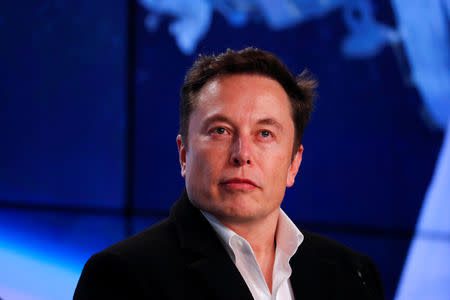SEC says Elon musk still needs a Lawyer to approve before he tweets.
According to the Securities and Exchange Commission (SEC), Tesla CEO Elon Musk must still obtain pre-approval from lawyers before tweeting Tesla-related information.
The SEC reaffirmed its position in a letter to the United States Court of Appeals for the Second Circuit in New York this week, maintaining that a prior settlement agreement between the agency and Musk is totally constitutional and valid.
Background
In 2018, the Securities and Exchange Commission (SEC) filed a lawsuit against Elon Musk, alleging that he made false and misleading statements on Twitter about taking Tesla private. Musk tweeted in 2018 that he had “financing secured” to take Tesla private for $420 per share and that investor backing for the transaction had been confirmed. Tesla’s stock price fluctuated in the weeks that followed, prompting the SEC to investigate Musk for securities fraud.
As part of a settlement agreement, Musk agreed to have his public statements about Tesla reviewed by a lawyer before posting them on social media.
In May 2020, the SEC sought to hold Musk in contempt of court, arguing that he violated the settlement agreement by tweeting about Tesla’s production levels without having the tweets reviewed by a lawyer first. However, the court ultimately ruled in Musk’s favor, stating that the tweets in question did not violate the terms of the settlement agreement.
Despite this ruling, the SEC has made it clear that Musk is still required to comply with the terms of the settlement agreement and have his public statements about Tesla reviewed by a lawyer before posting them on social media. Therefore, it is accurate to say that Elon Musk still needs a lawyer to approve his tweets about Tesla in order to comply with the SEC settlement agreement.
Also, see; 362,758 Tesla vehicles recalled over Full Self-Driving software safety concerns
Twitter permits cannabis advertisements in legal states
SEC says Elon musk still needs a Lawyer to approve before he tweets
Musk and Tesla reached an agreement without admitting fault. They both paid $20 million in fines, Musk withdrew as Tesla chairman, and he agreed to have most Tesla-related communications reviewed by a lawyer before tweeting, lest he says something that influences share price.
Musk’s lawyers filed a brief with a court of appeals in September 2022 to remove the executive from a “government-imposed muzzle” that “inhibit[s] and chill[s] Mr. Musk’s lawful expression.” A federal judge had previously denied Musk’s attempt to terminate the identical SEC settlement provision.
Musk’s attorneys claimed earlier this week that a recent jury verdict in a separate trial should be considered in the appeal. Musk was found not guilty of securities fraud in an early February class action case in which stockholders who lost money after Musk tweeted “funding secured” sued the executive for damages.
“In light of the jury finding that Mr. Musk’s tweets did not violate Rule 10b-5, the SEC lacks support both for the consent decree itself and for its arguments on appeal,” writes Spiro. “The verdict provides a further reason why the public interest in avoiding unconstitutional settlements easily subsumes the SEC’s purported stake in the consent decree.”
Attorneys can file additional authorities with an appellate court after filing a brief but before the court renders a decision if they discover new legal authority that is directly linked to the issue brought on appeal and has the potential to alter the case’s outcome.
Spiro’s argument was rejected by the SEC, which stated that a jury verdict in a private securities-fraud action does not qualify as “pertinent and significant” authority. Musk also “waived his opportunity to test the Commission’s allegations at trial when he voluntarily agreed (twice) to a consent judgment.”
The government maintained that the judgment ignores the public interest in the negotiated settlement and does not prevent Musk from tweeting properly about Tesla or other topics. Lawyers for the SEC also questioned the legality of reversing the deal years later.
The court can either accept or reject Spiro’s letter. The appeal will be heard orally in the spring, but no date has been established.

















